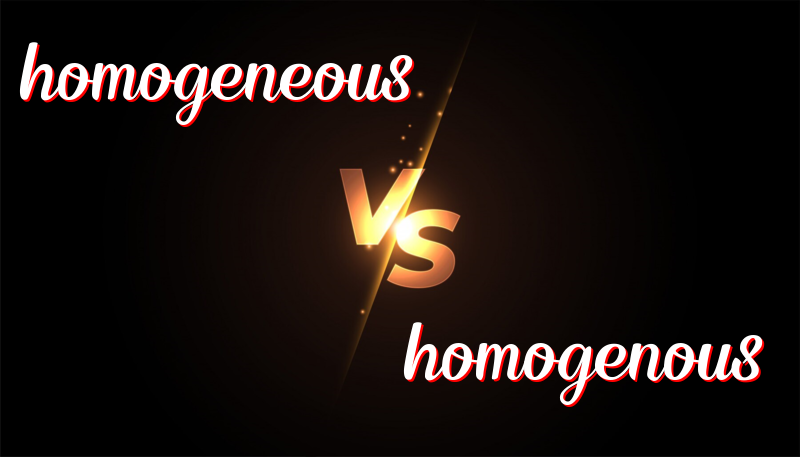Differentiating Homogeneous and Homogenous: Understanding Usage and Context
Understanding “Homogeneous” vs “Homogenous”
Sometimes, words that sound alike can be confusing. Two such words are “homogeneous” and “homogenous”. They look similar, but there are differences in their meaning and usage. Let’s learn about these words.
History of the Words
Homogeneous: This word comes from two Greek words. “Homo” means “same”, and “genos” means “kind or type”. Together, they mean “same kind”.
Homogenous: This word comes from the same roots but lost a letter along its way. It is often used as a shorter form of “homogeneous”. This difference started in biology. It is used to talk about organisms and their growth.
How to Use Them
Homogeneous: Use this word when you want to describe something that is the same throughout. It can be about a group of people, a mixture, or other things.
- The classroom was homogeneous; all the students wore the same uniform.
- The soup was homogeneous because all the ingredients were mixed well.
- The company values a homogeneous team to maintain consistency.
- Her style of art was homogeneous, with no change in technique.
- The landscape was homogeneous, with just sand and no other features.
Homogenous: This word is often used in science. It talks about similar growth, structure, or origin, especially in biology.
- The scientists studied the homogenous cells in the lab.
- The plant had a homogenous structure, with all leaves the same shape.
- The animals shared a homogenous development pattern.
- In the study of evolution, homogenous traits are important.
- The research focused on homogenous tissue samples.
Trick to Remember the Difference
To remember which word to use, think of “gene” in homogeneous. It reminds you of “consistency and sameness”. Homogenous, on the other hand, often links to science and biology.
Summary
Homogeneous is used for things that are the same kind throughout, like mixtures or groups. Homogenous is mostly used in a scientific context, especially biology.
With these tricks and examples, you can now feel more confident using “homogeneous” and “homogenous” correctly in sentences.

Leave a Reply
You must be logged in to post a comment.